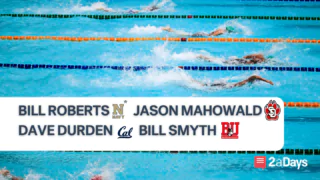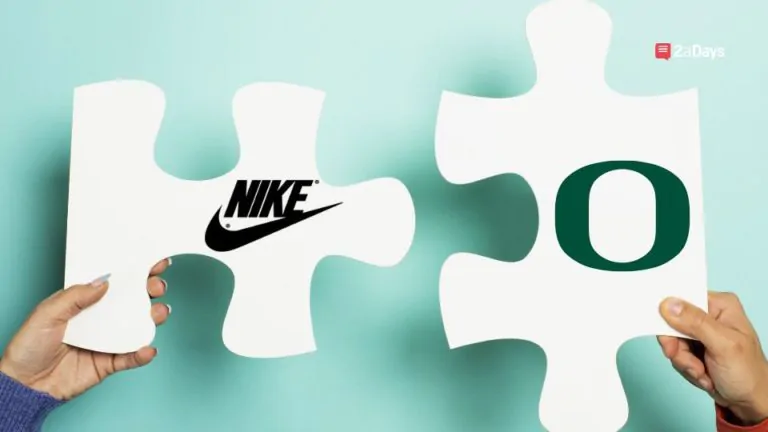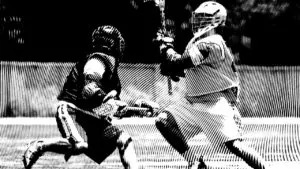We interviewed four stand-out Division I swimming coaches to understand an inside perspective on recruiting.
Coach Bill Roberts has been the head coach at the U.S. Naval Academy for 18 years and has led the team to 17 consecutive Patriot League titles.
Coach Dave Durden has established Cal men's swimming and diving as a top program in the nation and was chosen as the Head Coach of Team USA for the Tokyo Olympic Games.
Coach Jason Mahowald has led the University of South Dakota women's swimming and diving team to top-10 finishes at the NCAA Division II National Championships and also guided his men's and women's program through a transition from Division II to Division I.
Finally, during his 16 seasons at Boston University, Coach Bill Smyth has accumulated a .718 head-to-head win percentage in dual meets across his men's and women's teams. We asked the accomplished swimming coaches five questions, and here is what they said:
1. What is the most important quality you look for in a recruit?
Coach Roberts – Navy Swimming
Roberts highlighted the athlete's desire to compete as the most important quality in a recruit. He explained that swimming coaches look for longevity from members of their team and want to ensure that the swimmers coming into the program would be willing to compete for all four years.
Coach Durden – UC Berkeley Swimming
The number one factor that Durden looks for in recruits is their compatibility with the team. Having won four NCAA DI Championships and finished in the top two for ten straight seasons, Durden places greater responsibility on the team members to determine the fit of a recruit. His swimmers are “great judges of character and fit.” Recruits who are able to pass the litmus test of the current team members generally have the traits that Coach Durden and the team values.
Coach Mahowald – South Dakota Swimming
Mahowald pinpointed three key qualities that he looks for in recruits. They must be hardworking and willing to put in the work to be successful. They must be respectful, which is often indicated by the relationship between the recruit and their parents. Finally, the fit has to be right for both the athlete and the team.
Coach Smyth – Boston University Swimming
The most essential quality that Smyth looks for in a recruit is fit. This includes the “athletic criteria, academic criteria, culture, ability to improve, and camaraderie with the current team.” He stressed the importance of making a positive impression on the team and coaches with every communication.
2. When and how should recruits contact college swimming coaches?
Coach Roberts – Navy Swimming
Coach Roberts recommends that athletes contact swimming coaches in the summer heading into their junior year. This allows recruits enough time to gather enough knowledge about the different options available to make an informed decision. Roberts emphasizes that the most important aspect of communication is that the initial contact is done by the athletes themselves rather than their parents.
Coach Mahowald – University of South Dakota Swimming
Mahowald typically begins looking at potential recruits in their junior year of high school. They try to bring recruits onto campus early in their senior year and have them committed before Christmas.
Coach Smyth – Boston University Swimming
Smyth notes that the college recruiting process for swimming and diving has trended towards starting earlier and earlier. He recommends that recruits fill out the school's athletic questionnaire as thoroughly as possible to get on the coach's radar and initial contact should be through email. At the earliest, this should happen “a month before their junior year.” Throughout their junior year, recruits should narrow their college choices to their top five schools and take opportunities to visit.
Related: Rate your Coaches, Facilities and Campus Visits
3. Is social media an important aspect of recruiting? What advice do you have for student-athletes regarding their online presence?
Coach Roberts – Navy Swimming
Coach Roberts holds a strong opinion on the role of social media in recruiting, stating that it is an important glimpse into an individual. Concerning posts can have a drastic effect on the recruiting process and as such, athletes must be careful with their social media accounts. Athletes must be honest and take responsibility for their actions online.
Coach Durden – UC Berkeley Swimming
While social media has allowed recruits to see more about potential schools and teams, Durden emphasizes the importance of trips for recruits. His biggest piece of advice was to “visit on a Tuesday, Wednesday, or Thursday and to ask the same questions to different athletes, coaches, and support staff.” Recruits should see if they get the same answers from different parts of the team. This allows recruits to better understand the daily life at a college.
Related: Daily Grind: My Life as a Boston University Swimmer
Coach Mahowald – University of South Dakota Swimming
Mahowald says they aim to check the social media accounts of all of their recruits before bringing them onto campus. He explained that their team has stopped recruiting athletes because of pictures on their social media and warned recruits to be careful with what they post.
Coach Smyth – Boston University Swimming
Their coaching staff does not research an athlete's social media habits, however, Smyth suggested that athletes use social media with caution. Online activity is in many ways permanent, and athletes may not be able to get away from something they have posted.
Related: Social Media Don'ts: Examples from Athletes Who Risked Their Scholarships
4. What advice do you have for recruits who get turned down by their dream schools?
Coach Roberts – Navy Swimming
Roberts firmly believes that the disappointment of being turned down by a dream school should be used as a form of motivation to prove the program wrong. While such a situation is undoubtedly disappointing, it can lead to a better situation. Adopting a positive mindset can allow recruits to find a more suitable team that genuinely appreciates their worth and potential value.
Coach Durden – UC Berkeley Swimming
Durden suggests that recruits who may become discouraged when their hard work is limited by talent should reassess and ensure that the path they have chosen is a good fit. He compares this to being thrown into an advanced class in school. Even if a student studies extremely hard, they will not have the same success as students that are already at an advanced level.
Coach Smyth – Boston University Swimming
Smyth's advice for recruits who have been turned down by their dream schools is to “be ready for backups and backups for the backups.”
Related: Jamaal Williams: When One Team Drops You, You Go Somewhere Better
5. How significant are the academics of a student-athlete in recruiting?
Coach Roberts – Navy Swimming
Roberts believes that it is essential for recruits to pursue their “full potential as a student, an athlete, and a person.” A strong academic background makes it easier for swimming coaches to want to recruit an athlete. Roberts champions “concentrating hard in the classroom and performing well on and off the pool”. This is important to ensuring a well-rounded collegiate experience that will prepare student-athletes for their life beyond college.
Coach Durden – UC Berkeley Swimming
Durden shares that a strong academic background is crucial to being able to attend Cal and succeed. He focuses on a holistic approach to the college experience, stating that a student-athlete who is “not comfortable, confident or happy in every aspect of their life” such as sport, school, and the social aspect, will begin to see that unhappiness seep into other areas. Student-athletes must be prepared for the academic workload in order to perform at their best in the pool.
Coach Mahowald – University of South Dakota Swimming
Mahowald expressed the “huge role” of academics throughout the recruiting process. Student-athletes who cannot be academically successful would not be able to swim on the team. Mahowald suggested that an ACT score of 24 or above was a good indicator of academic success for their recruits.
Coach Smyth – Boston University Swimming
Satisfying the academic criteria of Boston University was part of Smyth's definition of fit. When assessing recruits, he looks for a “tough curriculum, with more A's than B's on the transcript.” In addition to grades, Smyth listed honors, AP, and IB courses as important to the academic profile of recruits.
* Originally published on February 21, 2022, by Connor Xu







